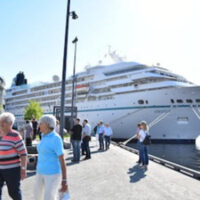Types of Passenger Injuries on Cruise Ships

Each year, about thirty million passengers and crew members travel on large cruise ships. Generally, these vessels are more like floating cities than oceangoing ships. So, the potential for injury is high. Additionally, since these injuries occur so far from hospitals, a rather mild injury can be a very serious situation.
The same general negligence principles apply on both land and sea. Injured workers are entitled to no-fault benefits. And, injured passengers might be entitled to substantial compensation, if the cruise ship company was negligent in some way.
However, there are some procedural differences in both these claims. Since so many cruise ships move in and out of Florida, the best Tampa personal injury attorneys are generally well-versed in these distinctions.
Cruise Ship Employees
State workers’ compensation laws do not apply to injured crew members on oceangoing vessels, even if these ships are docked. Instead, the federal Jones Act applies. These laws also cover injured fishermen and any other seamen who spend at least 30 percent of their time on the water.
To obtain compensation for falls and other injuries, victims must prove that the ship owner’s negligence proximately caused the injury.
Assume Ishamel is on deck during a moderate storm. He slips on an oily patch. Normally, Ishamel could have recovered his footing. But because of the pitching deck, he loses his balance and falls.
Even though the oily patch might not have entirely caused Ishamel’s fall, it proximately caused the fall. That’s enough for Ishamel to obtain compensation.
Coastal Passenger Injuries
If a passenger is injured on a cruise ship when it is less than three miles away from port, the nearest state’s negligence law applies. These laws vary slightly in different jurisdictions, but generally, victims must show that the owner:
- Had a legal duty of care, and
- Knew, or should have known, about the hazardous condition.
The still-ongoing Chloe Weigand saga is a good example. In 2019, the 2-year-old fell out of an open window on a Royal Caribbean cruise ship.
Royal Caribbean definitely owed a legal duty to Chloe and her family, because they were paying passengers. Knowledge of the open window hazard, however, is another issue. As it turns out, Chloe’s grandfather’s recklessness might come into play as well. But that’s the subject of another blog.
Offshore Passenger Injuries
In state law premises liability claims, victims are usually entitled to compensation for economic losses, such as medical bills, and noneconomic losses, such as pain and suffering.
If the vessel was more than three miles offshore, state law is inapplicable. Instead, victims might file claims under the federal Death on High Seas Act. DOHS usually applies to both wrongful death and personal injury claims.
DOHS limits compensation to pecuniary losses, mostly economic losses. The survivors in a wrongful death situation might be able to file additional claims under a separate legal theory, such as negligent infliction of emotional distress, and obtain compensation for their own grief and suffering.
Contact Savvy Lawyers
Cruise ship owners are usually responsible for cruise ship injuries, but the degree of responsibility varies. For a free consultation with an experienced Tampa boating accident attorney, contact The Matassini Law Firm, P.A. Hospital, home, and after-hours visits are available.
